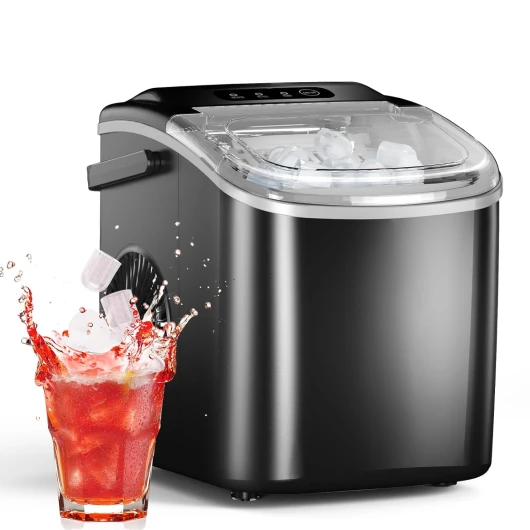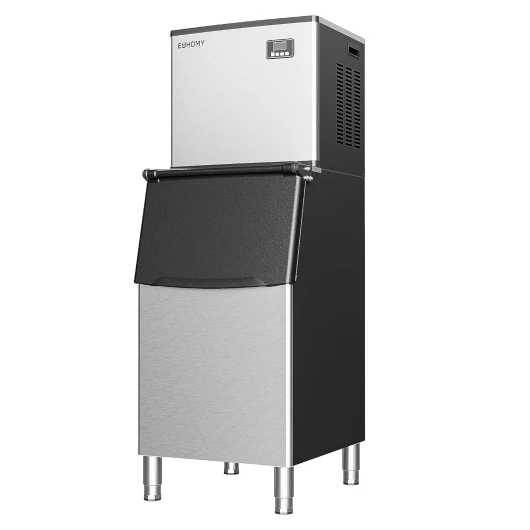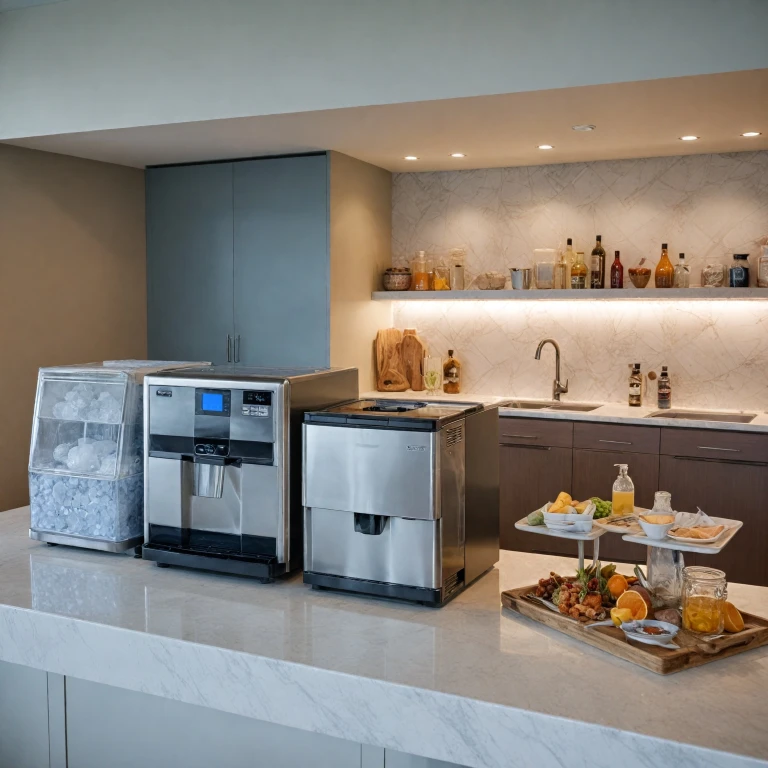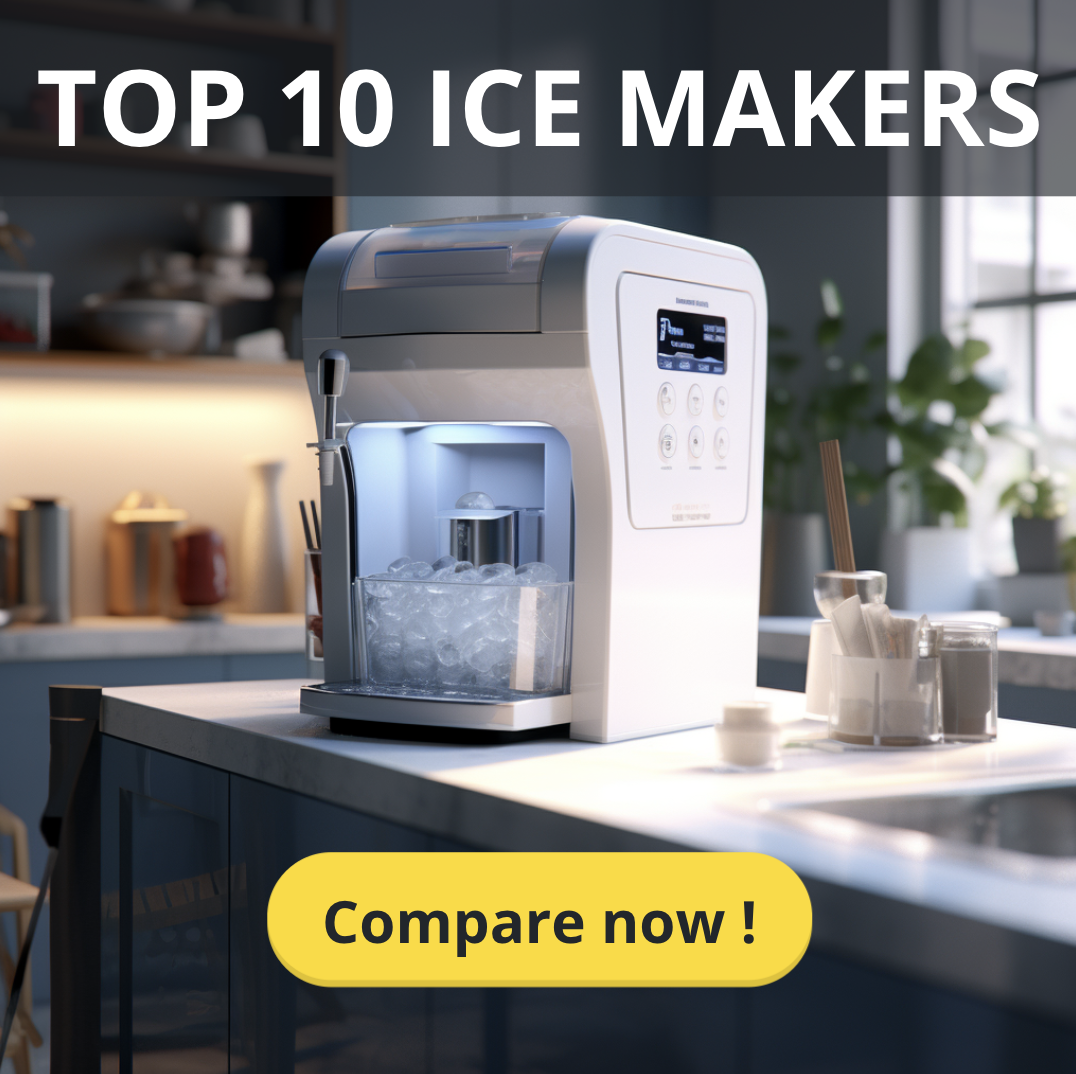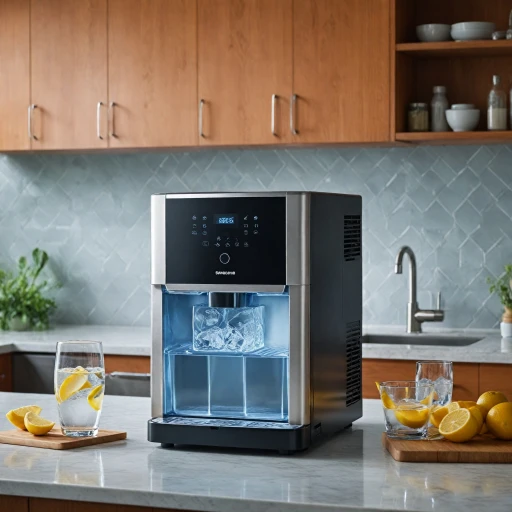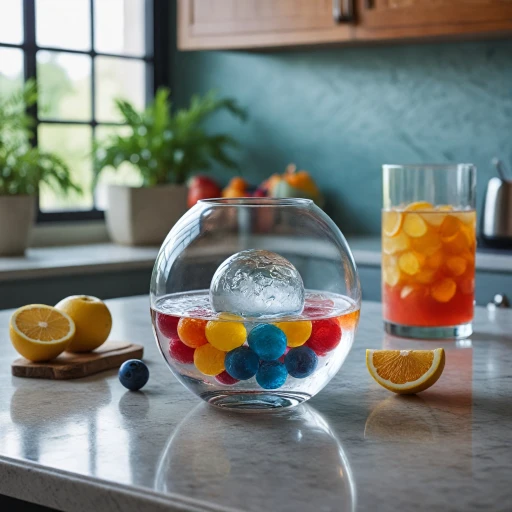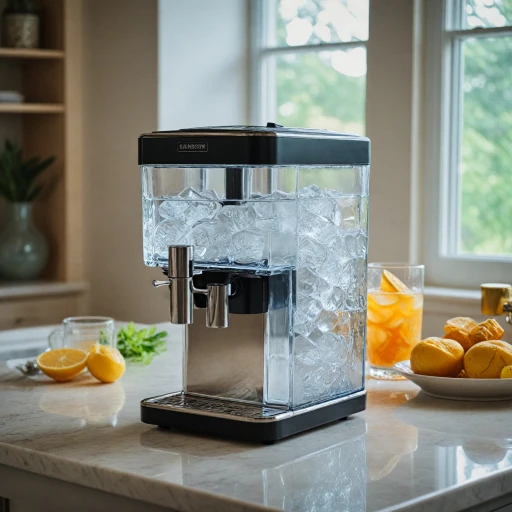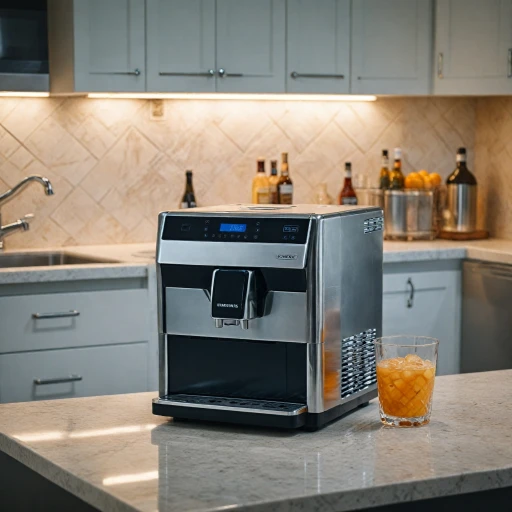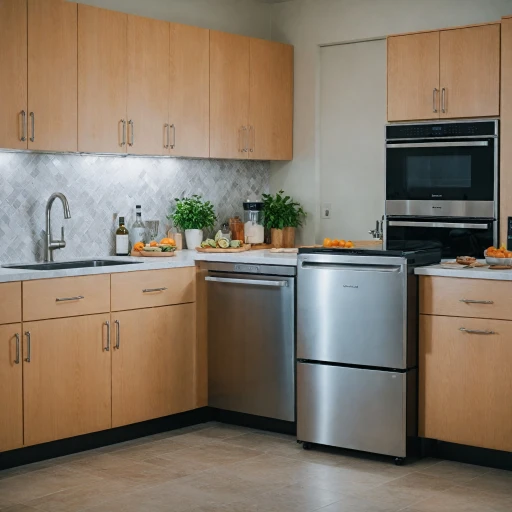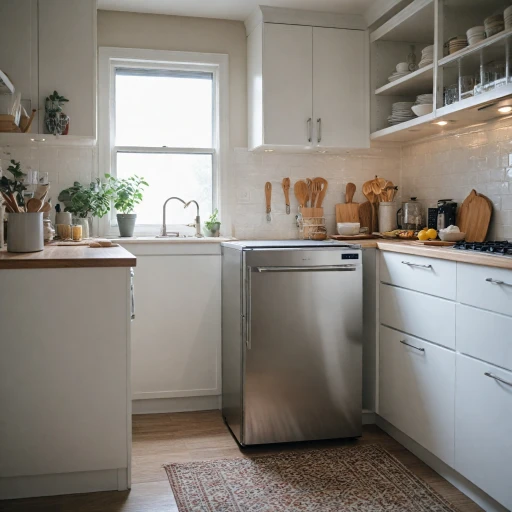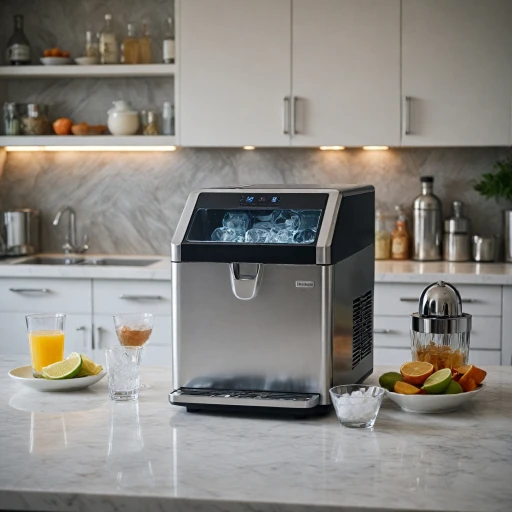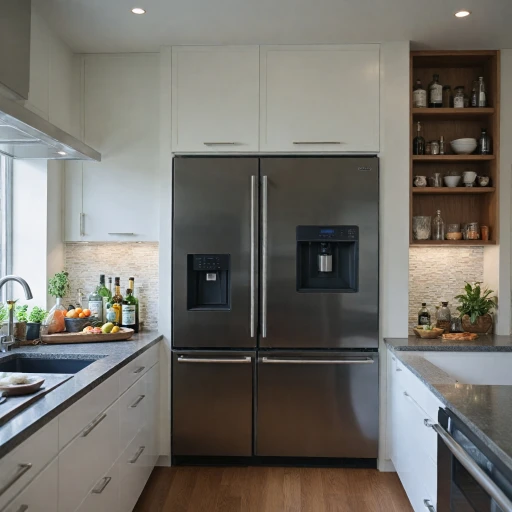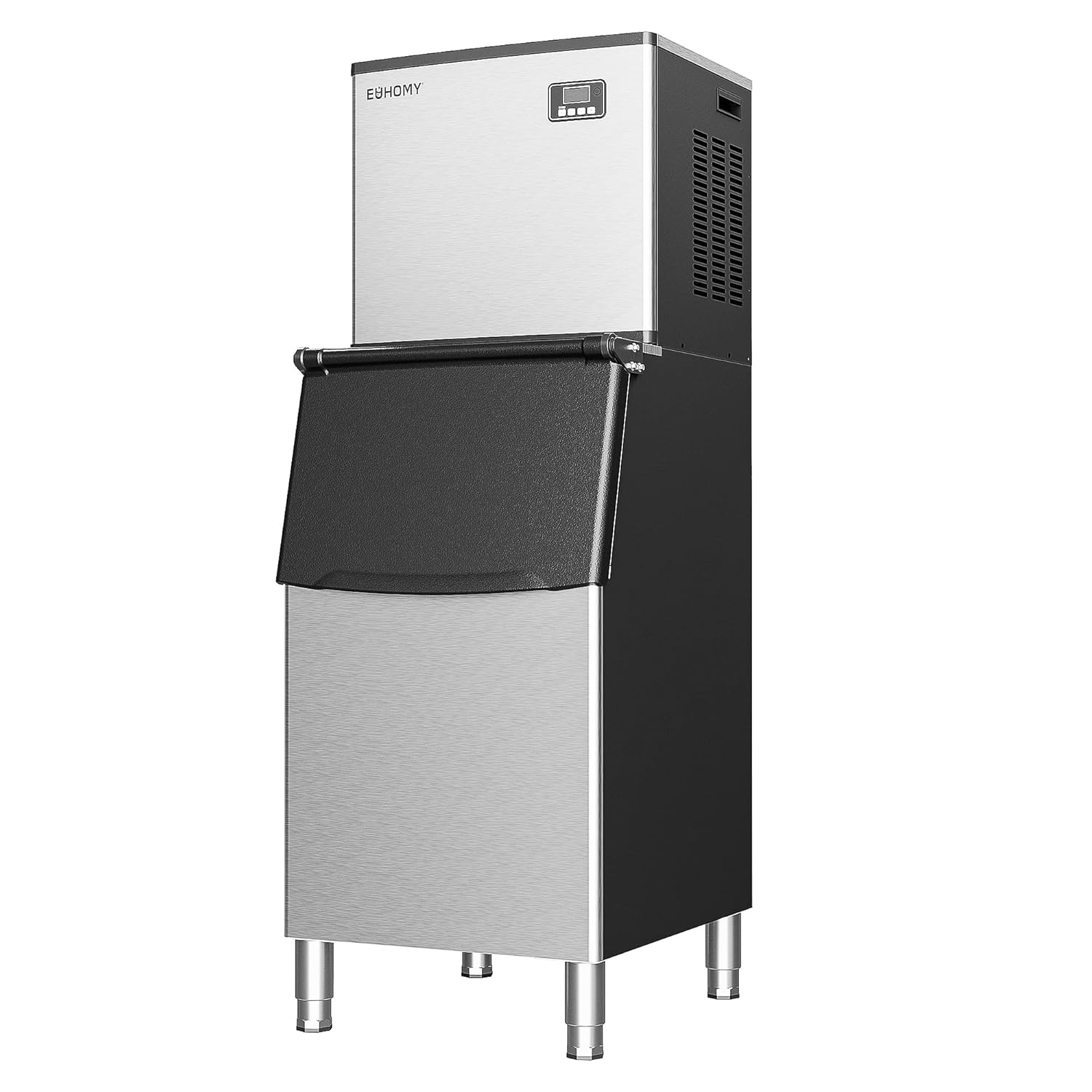
Understanding Different Types of Ice Machines
Exploring Various Ice Machines
When it comes to selecting the ideal ice machine, understanding the different types available can significantly influence your decision. Each variety of ice maker caters to unique preferences and requirements, ensuring you find the best match for your needs. Here's a closer look at some popular options:
- Countertop Ice Makers: Perfect for those with limited space, these compact machines are known for their portability. They produce bullet ice cubes and are excellent for small households. For more insights on compact cubes, check out choosing the right cabinet ice maker.
- Nugget Ice Makers: If you love chewable ice, nugget ice makers are the way to go. They're popular for their soft texture, often seen in commercial settings. But for an affordable option, consider reviewing affordable nugget ice appliances.
- Clear Ice Makers: These machines are designed to produce crystal-clear ice cubes, free from impurities. Their aesthetic appeal makes them a favorite in home bars and upscale events.
- Commercial Ice Machines: Built for large-scale production, these machines have high output, measured in pounds of ice, making them suitable for restaurants and hotels.
Each type has its advantages, whether it's the portability of countertop versions or the unbeatable clarity of clear ice. Key factors such as machine size, water reservoir capacity, and energy efficiency, like Energy Star ratings, should also be taken into account. The weight of the machine, often listed in pounds, and its dimensions in inches may influence your choice depending on your space limitations and intended use.
In your search for the perfect maker, online reviews on platforms like Amazon can be insightful. Hearing from other users who have tested different makers helps in making an informed choice. Filtering through posts allows you to gauge real-life experiences, contributing to a well-rounded decision.
Key Features to Look for in an Ice Machine
Features That Enhance Ice Making Efficiency
When searching for the right ice maker, it’s crucial to focus on specific features that match your requirements. Whether you're interested in a portable countertop ice machine or a larger commercial ice maker, certain factors can significantly affect efficiency and convenience.
- Ice Type: The type of ice produced—be it bullet, nugget, or clear cubes—can influence your choice. These ice types cater to different preferences and uses, from beverage cooling to healthcare applications.
- Ice Production Speed: Consider how quickly the machine can produce ice. Some models offer ice in minutes, making them ideal for both spontaneous gatherings and everyday use.
- Size and Capacity: The size and weight of the machine matter if space is a concern, especially for small kitchens, RVs, or outdoor setups. Check the profile in inches and weight in pounds to ensure the best fit.
- Water Reservoir: A removable or easy-to-fill water reservoir can simplify operations and maintenance. This feature ensures a consistent ice supply without frequent refilling.
- Energy Efficiency: An energy star rating indicates a machine that consumes less power, saving on energy costs over time. This trait is valuable for eco-conscious buyers and those mindful of utility bills.
- Cleaning and Maintenance: Regular cleaning options such as self-cleaning cycles can save time and effort, extending the lifespan of your ice maker.
Reviewing user feedback from popular platforms like Amazon can offer insights into the real-life performance of these features. Customizing these options to fit your needs will not only enhance your ice-making experience but also ensure cost-efficiency over the long run.
Maintenance Tips for Longevity
Routine Maintenance for Prolonging the Life of Your Ice Machine
To ensure your ice maker performs at its best and lasts for years to come, regular maintenance is vital. An ice machine is an investment, whether it's a countertop ice maker producing nugget ice or a commercial unit generating pounds of ice daily. Here are some essential tips to keep your ice machines in prime condition:
- Regular Cleaning: A thorough cleaning every few months prevents mold and mineral build-up. Be sure to clean all components, including the water reservoir, to produce sanitary and clear ice.
- Filter Replacement: Many ice makers, especially those labeled Energy Star, come with water filters. Replace these filters as recommended to maintain ice quality and efficiency.
- Descale the Machine: Hard water can cause mineral deposits in your ice maker. Use specifically formulated descaling solutions to remove these deposits, extending your machine’s life.
- Inspect Components: Regularly check for wear and tear. Look at ice bins, water lines, and the overall condition to ensure the machine functions optimally.
- Follow the Manual: Each ice maker has unique aspects regarding maintenance. Following the manufacturer’s guidelines ensures you're not voiding warranties or causing avoidable issues.
Keeping these maintenance tips in mind will not only enhance the ice maker's efficiency but also save you money and hassle in the long run. For more advice on choosing the best commercial unit suited to your needs, make sure to explore our linked resources.
Comparing Popular Ice Machine Brands
Evaluating Popular Brands and Models
When it comes to selecting the right ice machine, knowing the brands and models can make all the difference. Each brand typically has its own distinguishing features, whether it be energy efficiency, size, ice type (like nugget or bullet ice), or design. Understanding how these elements vary across brands can help you choose the best option for your needs.
- Profile Opal: Known for its compact countertop ice makers, Profile Opal offers machines that deliver excellent nugget ice, a favorite for soft chewable texture. They often compete well on Amazon with high ratings due to their user-friendly design and efficient water reservoir systems.
- Commercial Ice Makers: Brands in this category are perfect for businesses that need to produce large volumes of clear ice quickly. Their machines typically focus on durability and capacity, often weighing in the range of several hundred pounds.
- Countertop Ice Machines: These are perfect for home use, often portable and able to produce small to moderate amounts of ice cubes. Many of the best models are designed to fit under low cabinetry, making them an excellent choice for tight spaces.
Regardless of which type of ice maker you're considering, always check user reviews to see real-life experiences. Performances can vary significantly even among well-known makers tested by many. For instance, some models may produce more pounds of ice within minutes, while others excel in having an easy cleaning process or a quiet operation.
Budget Considerations and Cost Efficiency
Balancing Expenses and Efficiency
When selecting an ice maker, considering your budget is just as important as evaluating its features and capabilities. Whether you are eyeing a countertop ice maker for your home or a commercial ice machine for your business, understanding cost efficiency is crucial to making a smart purchase.
- Initial Investment vs. Long-Term Savings: Start by examining the initial cost of the machine. While some may have a higher price tag due to advanced features, they might offer benefits like energy efficiency, saving you money in the long run. Machines marked with an Energy Star certification can significantly lower your electricity bills.
- Production Needs: Identifying whether you need a portable ice maker or a high-capacity commercial ice machine is key. A larger machine might be costlier upfront but could prove more efficient if you require high ice production, measured in pounds per day.
- Maintenance Costs: Consider the cost of regular maintenance, including cleaning supplies and potential parts replacement. Some ice makers come with self-cleaning options or easy-access water reservoirs, minimizing ongoing expenses.
Ultimately, finding a balance between your budget and the functionality of the ice maker is essential. Whether you prioritize the production of nugget ice, bullet ice, or clear ice, understanding your specific needs and how each option aligns with your financial constraints will help ensure you make a cost-effective decision.
User Reviews and Real-Life Experiences
Insights from Users: Real-World Experiences
When we're in the market for an ice machine, diving into user reviews can offer invaluable insights beyond technical specifications. These real-life experiences help paint a clearer picture of what to realistically expect from various ice makers.- Performance: Many users commend countertop ice makers for their rapid production, often highlighting the ability to produce ice within minutes. Portable models, particularly those producing bullet ice, are praised for their efficiency in small settings.
- Types of Ice: Reviews often specify preferences for specific types of ice such as nugget, bullet, or clear ice. Some users favor nugget ice for its chewability, while others appreciate the classic, hard cubes for their clarity.
- Size and Design: The compact nature of several models is a highlight among users who value the space-saving features. The dimensions, specifically height and width in inches, play a key role when fitting these machines into tight spaces like corners or small kitchen countertops.
- Cleaning and Maintenance: Easy cleaning processes stand out in many positive reviews. Some models, especially those with removable water reservoirs, simplify maintenance, ensuring longevity as explored in the earlier section on maintenance.
- Reliability and Brand Comparisons: User reviews often discuss brand performance, noting which brands consistently deliver quality products over others. Brands, which have undergone rigorous testing, like some from Amazon listings, tend to receive more trust from buyers, especially when they carry certifications like Energy Star.
- Budget Considerations: Matching insights from the previous budget analysis, users typically find the balance between cost and features. Affordable options rarely compromise on quality, evident by their enduring popularity among reviewers, as seen in some posts analyzing cost efficiency.
-logo-retina.png)


